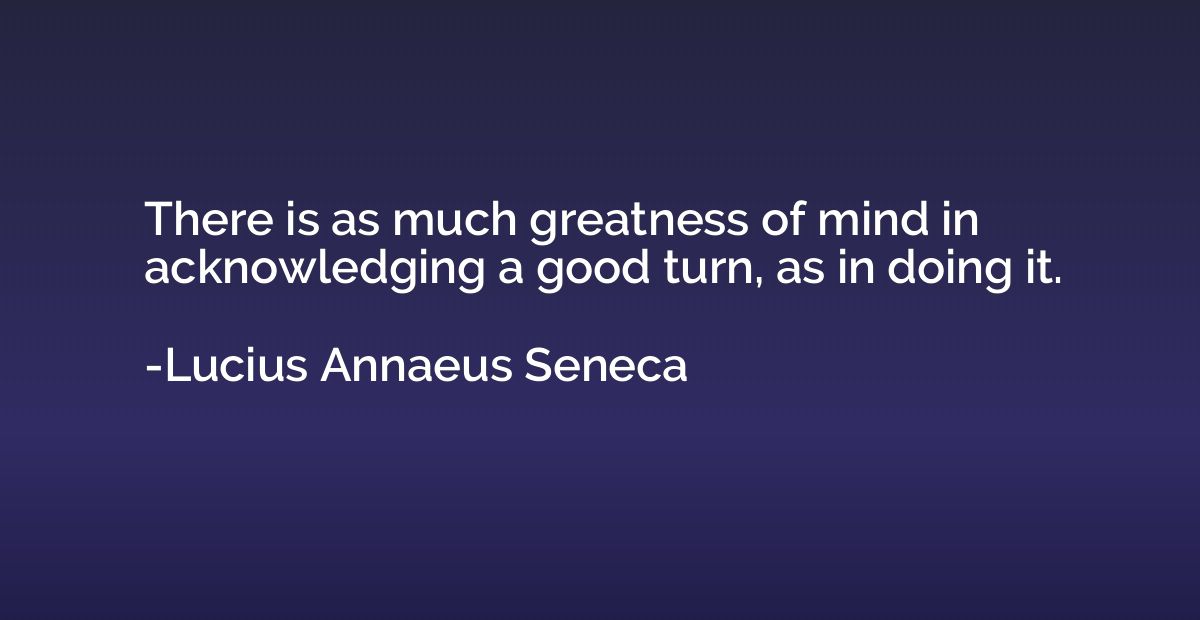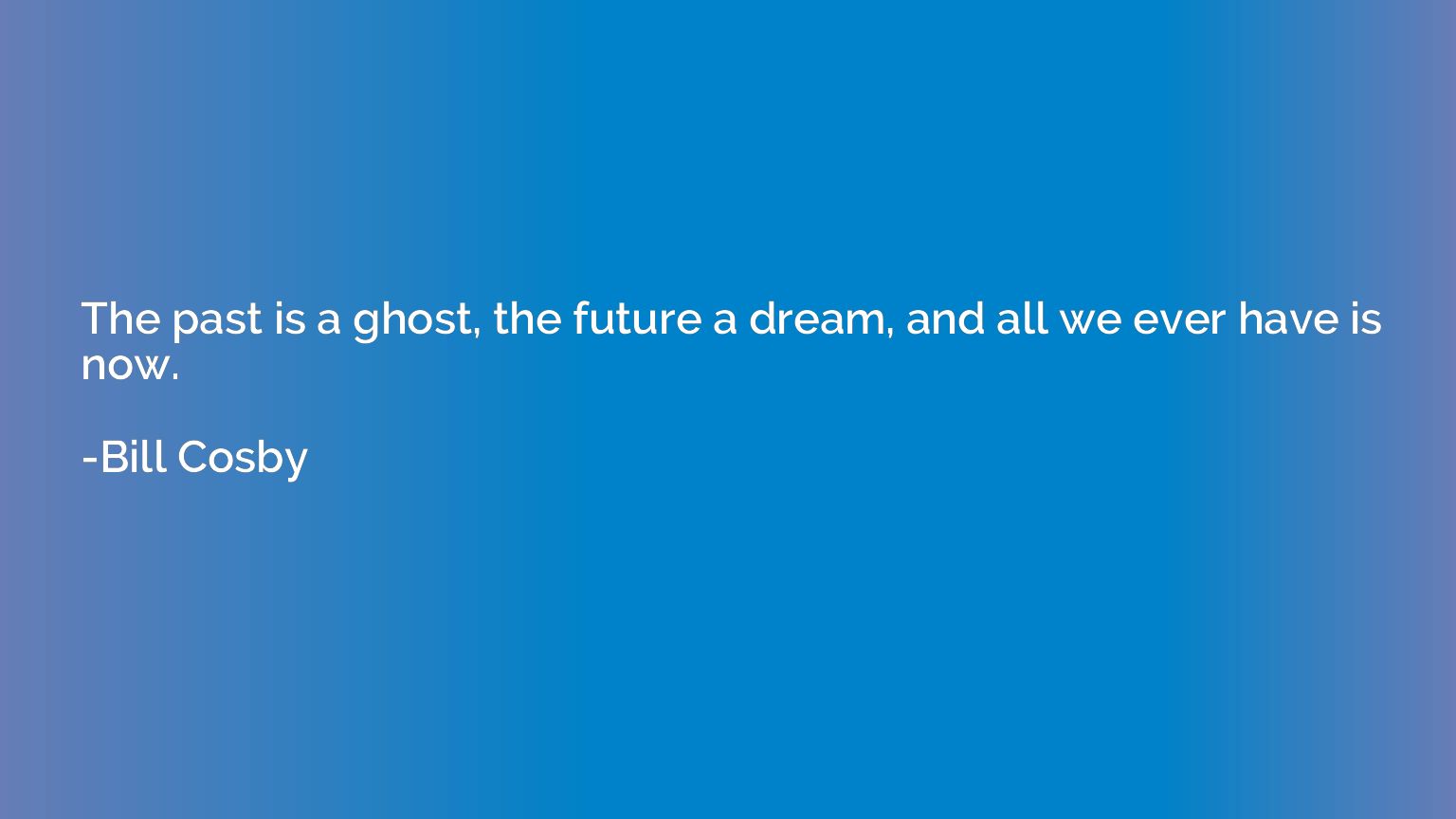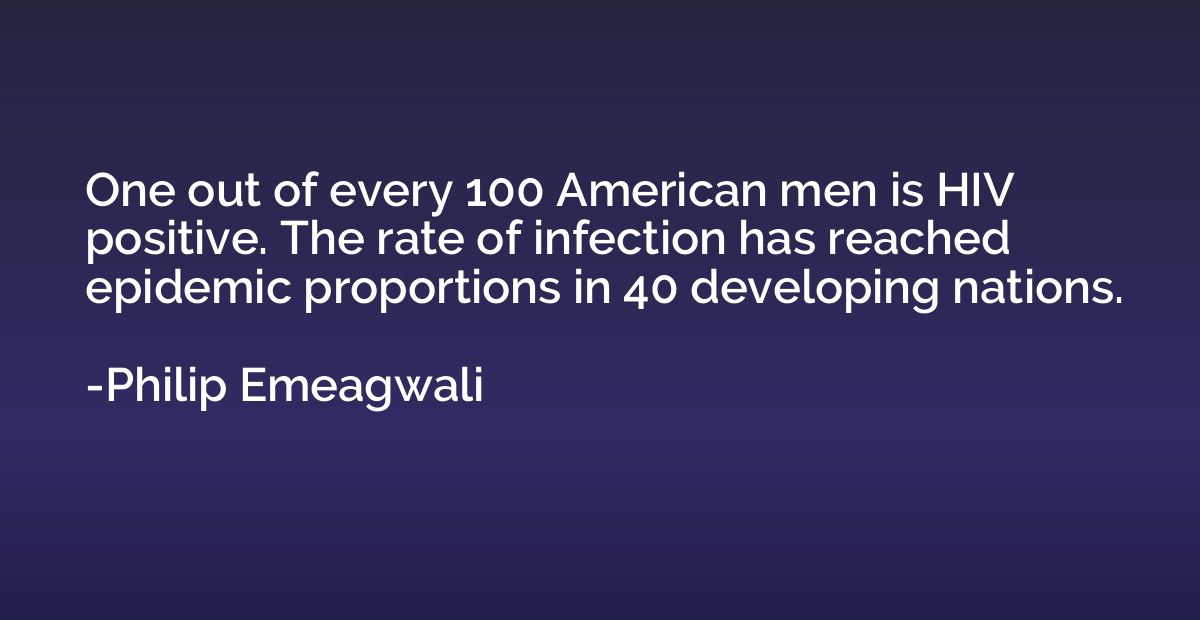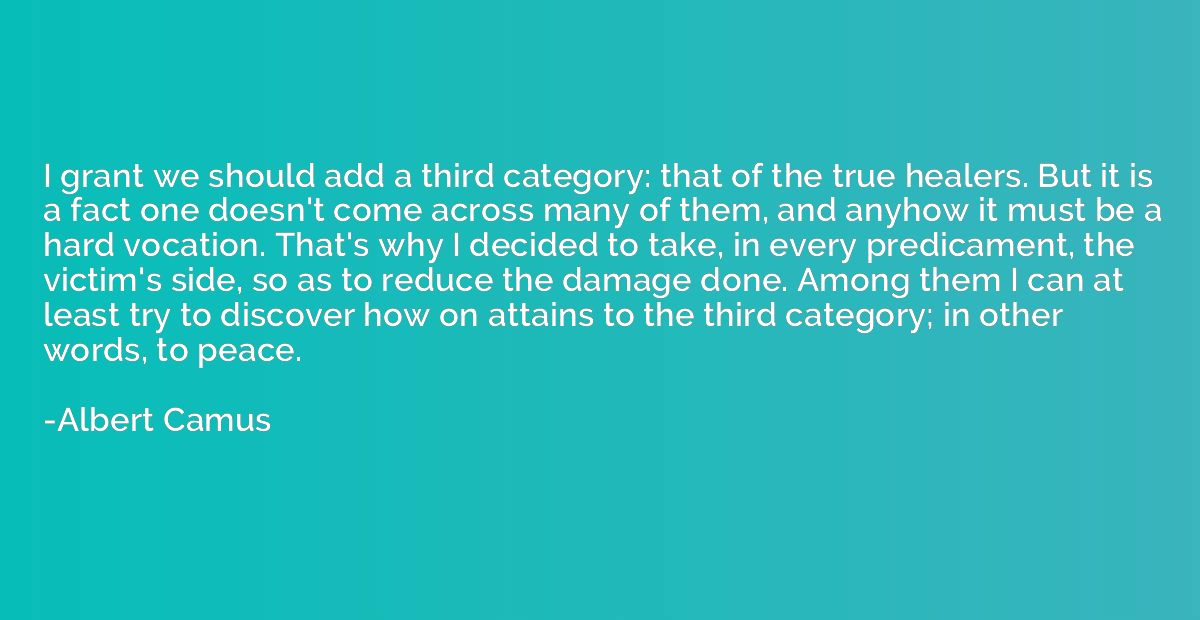Quote by Leo Tolstoy
But in the depths of his heart, the older he became, and the more intimately he knew his brother, the more and more frequently the thought struck him that this faculty of working for the public good, of which he felt himself utterly devoid, was possibly not so much a quality as a lack of something --not a lack of good, honest, noble desires and tastes, but a lack of vital force, of what is called heart, of that impulse which drives a man to choose someone out of the innumerable paths of life, and to care only for that one. The better he knew his brother, the more he noticed that Sergey Ivanovitch, and many other people who worked for the public welfare, were not led by an impulse of the heart to care for the public good, but reasoned from intellectual considerations that it was a right thing to take interest in public affairs, and consequently took interest in them. Levin was confirmed in this generalization by observing that his brother did not take questions affecting the public welfare or the question of the immortality of the soul a bit more to heart than he did chess problems, or the ingenious construction of a new machine.
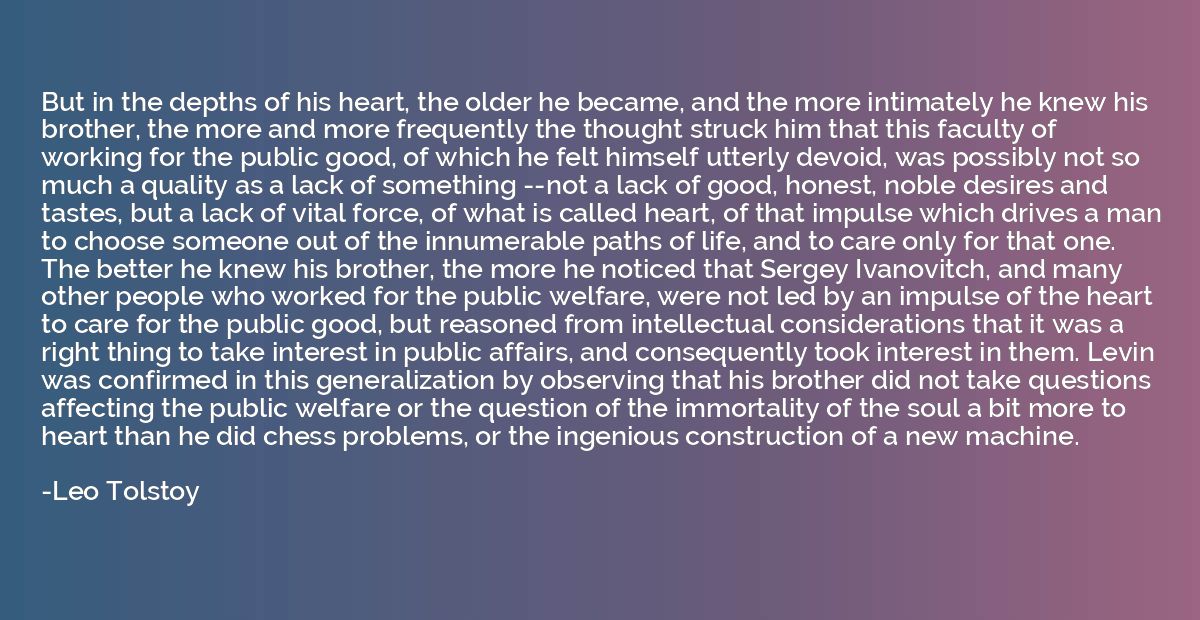
Summary
The quote suggests that the protagonist, Levin, begins to question the nature of his own character as he observes his brother, Sergey Ivanovitch, participating in public welfare work. Levin realizes that his lack of interest in working for the public good may not be due to a deficiency in his values or desires, but rather a lack of vital force or "heart." He notices that his brother and others who engage in public welfare do so primarily out of intellectual considerations rather than a genuine emotional drive. This realization leads Levin to generalize that some individuals may not passionately care about public affairs or important existential questions and instead treat them on par with less significant matters.
By Leo Tolstoy




